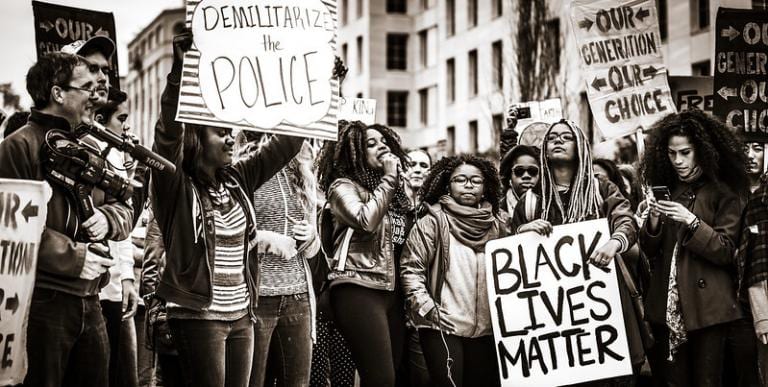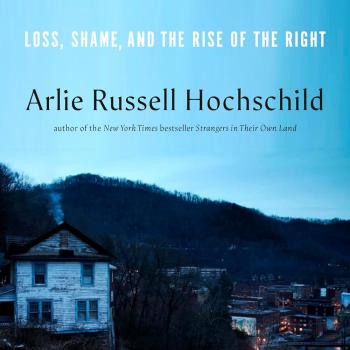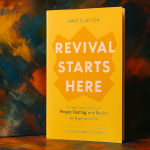The previous post looked at Esau McCaulley’s Reading While Black as an exercise in theological contextualization. Today, we consider a few ways the church can benefit from interpreters who read Scripture through the lens of the black experience.

Looking at the table of contents, I scratched my head trying to imagine how McCaulley would use Scripture to address topics such as policing, black identity, and black rage. I could only hope his methodology would be more exegetically rigorous than many authors of black liberation theology. He did not disappoint. I was humbled and in awe of the ways that McCaulley analyzed several texts.
A Theology of Policing
Having written a book on Romans, I’m spent a lot of time in Paul’s letter. So, when McCaulley directed my attention to Romans 13:1-7 in his discussion about policing, I was skeptical as to what there was to find. Yet, he artfully shows how a change in perspective sheds light on familiar passages.
In Romans 13:3, Paul writes,
For rulers are not a terror to good conduct, but to bad. Would you have no fear of the one who is in authority? Then do what is good, and you will receive his approval.
From this, McCaulley rightly draws an implication, “Paul says that the state’s policing duties should never be a terror to those who are innocent” (29). He rejects common applications of the chapter that argue for Christians to be passively obedient to the government (31-32). Instead, he uses the text to critique on the state and our ability to discern what God is doing through it.
McCaulley explains how Romans soldiers served a policing function in much of the empire. He then makes an astute observation, noting that Paul distinguishes the state (“rulers”) and the police (i.e., soldiers who “bear the sword”). Accordingly,
Paul recognizes that the soldier’s attitude toward the people who reside in the city will in large part be determined by those who give the orders. The problem, if there is one, does not reside solely in those who bear the sword, but those who direct it. In other words, Paul does not focus on individual actions, but on power structures. (39)
McCaulley adds,
He rightly focuses on those who control the sword and not merely the individual. This gives the Christian thinker and advocate the space to think structurally about how a just society should treat its people. Paul also speaks about the absence of fear, a central concern for Black folks. (41)
I can’t give a full recap of his entire argument here. But these quotes give a little taste of the chapter.
A Biblical Look at Black Identity
Chapter Five turns our attention to the question of identity. For many who have felt Christianity was a “white religion” and a tool of oppression, it’s no wonder that some people would wonder what the Bible has to say about black identity.
In a series of masterful moves, McCaulley highlights several key points in the biblical story in which black people play an important role. For example, he reminds us that Joseph married an African woman during his time in Egypt. He had two sons with her. The time eventually comes when Jacob decides to adopt Joseph’s sons, Ephraim and Manasseh.
Jacob sees the Brown flesh and African origin of these boys as the beginning of God’s fulfillment of his promise to make Jacob a community of different nations and ethnicities, and for that reason, he claims these two boys as his own. These two boys become two of the twelve tribes of Israel. Egypt and Africa are not outside of God’s people; African blood flows into Israel from the beginning as a fulfillment of the promise made to Abraham, Isaac, and Jacob. (101-2)
In these two African children, Jacob sees God fulfilling his promise to include different nations within his family. Therefore, McCaulley says, “We need to be as clear as possible about this. When it comes to the question of Black presence in the Bible, it is not a question of finding our place in someone else’s story” (103).
McCaulley also draws our eyes to the New Testament. While most readers are familiar with the Ethiopian eunuch, many people may overlook the fact that an African man walked with Jesus to his death. In Mark’s Gospel,
He says that Simon of Cyrene was compelled to carry the cross. Cyrene is a city in North Africa in what we now call Libya… At the moment in which Christ is reconciling the world to himself on the cross, an African family is making its first steps toward the kingdom. (107–8)
McCaulley concludes with a question.
What do the stories of Simon and the Ethiopian eunuch mean for Black Christianity? They show that the story of early Christianity is in part our story. We are at the cross. We are at the beginning of the emerging Christian community. There is no evidence that Simon or the Ethiopian felt that one couldn’t be African and Christian. (111-12)
For many American evangelicals, a “colorblind” interpretation is an ideal one. After all, some suppose, God does not see color. McCaulley disagrees.
The colorblind interpretation of Paul cuts against the grain of his entire ministry…. Jesus as the risen and reigning king has won for himself the ability to order history. This is relevant to the question of ethnic identity because Jesus’ vision for the climax of human history lauds the importance of ethnicity. (114-15)
These comments only begin to scratch the surface of Reading While Black. For example, some readers will be surprised that the book has an entire (and excellent) chapter on black rage.
Throughout this work, McCaulley demonstrates the value of biblically faithful and culturally meaningful contextualization. I hope others will further take up this approach to reading Scripture so that we can learn more from God’s word thanks to the cultural lens of people from around the world.
















